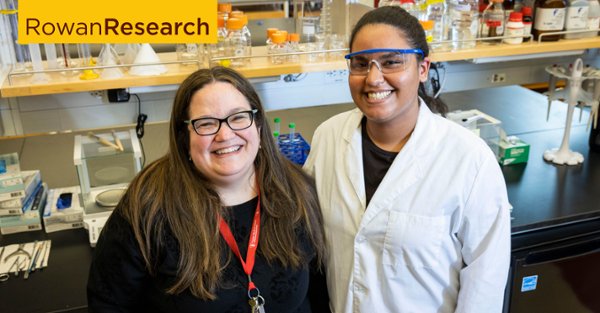How does sleep loss affect health?
 Dr. Diana Martinez, assistant professor in the Department of Biomedical Sciences at Cooper Medical School of Rowan University (CMSRU), has long wanted to know how sleep disturbances cause disease and dysfunction.
Dr. Diana Martinez, assistant professor in the Department of Biomedical Sciences at Cooper Medical School of Rowan University (CMSRU), has long wanted to know how sleep disturbances cause disease and dysfunction.
“We live in a society that doesn’t sleep,” said Martinez, who suffers from insomnia and has seen healthy friends develop hypertension after years of night shift work.
The impact of sleep disturbance on cardio-respiratory dysfunction starts early. Research shows that children who experience sleep disturbances are more likely to develop hypertension as adults.
“It’s almost like a lack of sleep is priming them for hypertension,” Martinez said.
In her lab, Martinez examines how the brain integrates signals in sleep to maintain normal blood pressure and cardiac function. By using rodent models, researchers can explore the brain changes that occur when patients develop hypertension due to irregular sleep.
Through a project funded by a grant from the National Institutes of Health, Martinez is studying the effects of a high-salt diet on hypertension, which disturbs the normal 24-hour rhythm of blood pressure. One focus of this project is teaching individuals living in food deserts how to make healthy decisions when many of the options available aren’t healthy.
“It’s not just one thing that changes to create a disposition toward hypertension and cardiac dysfunction,” said Martinez. Using an integrated approach, she is working to determine the contribution of single cells, networks and brain regions to the whole animal.
Since joining the medical school in 2021, Martinez and the students in her lab have submitted a paper for publication and presented at an international conference. Martinez was awarded an Editorial Fellowship with the Journal of Physiology and recently accepted a position on the Basic Cardiovascular Council of the American Heart Association.
“Hypertension and heart disease have increased,” Martinez noted. “We need to understand how our current 24-hour society, poor diet, and sleep disturbances lead to hypertension. This way, we can develop methods to address these causes rather than treating the symptoms later.”
Rowan University researchers are passionate about what they do. Find more at Meet Our Researchers.